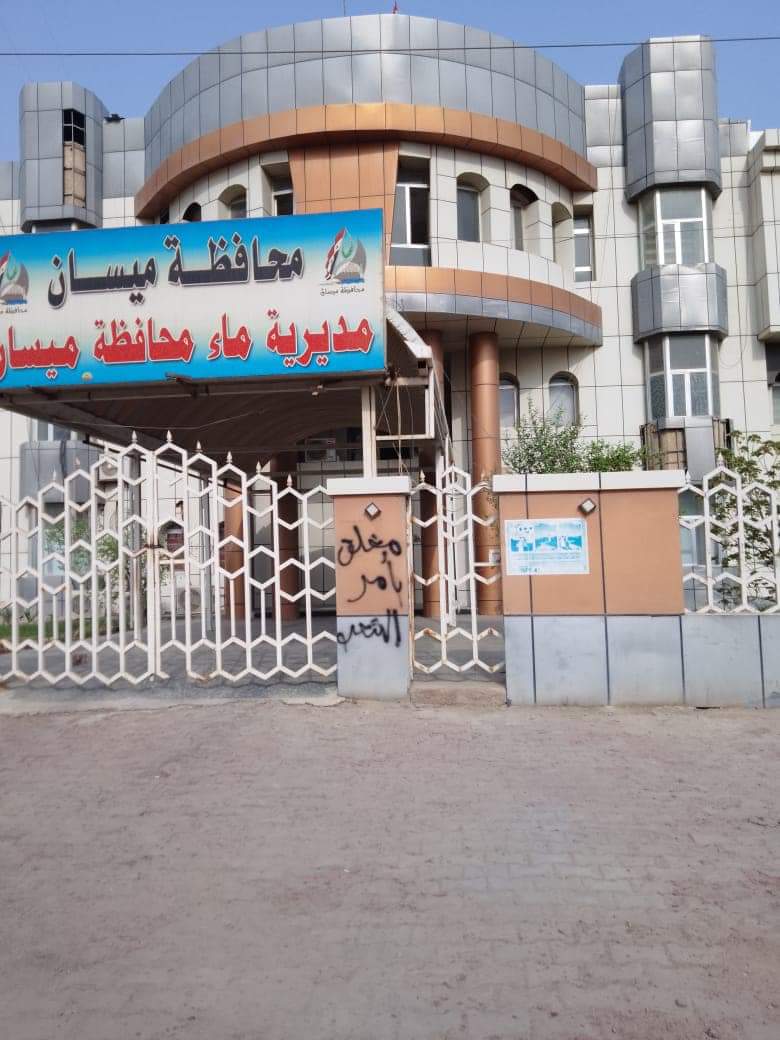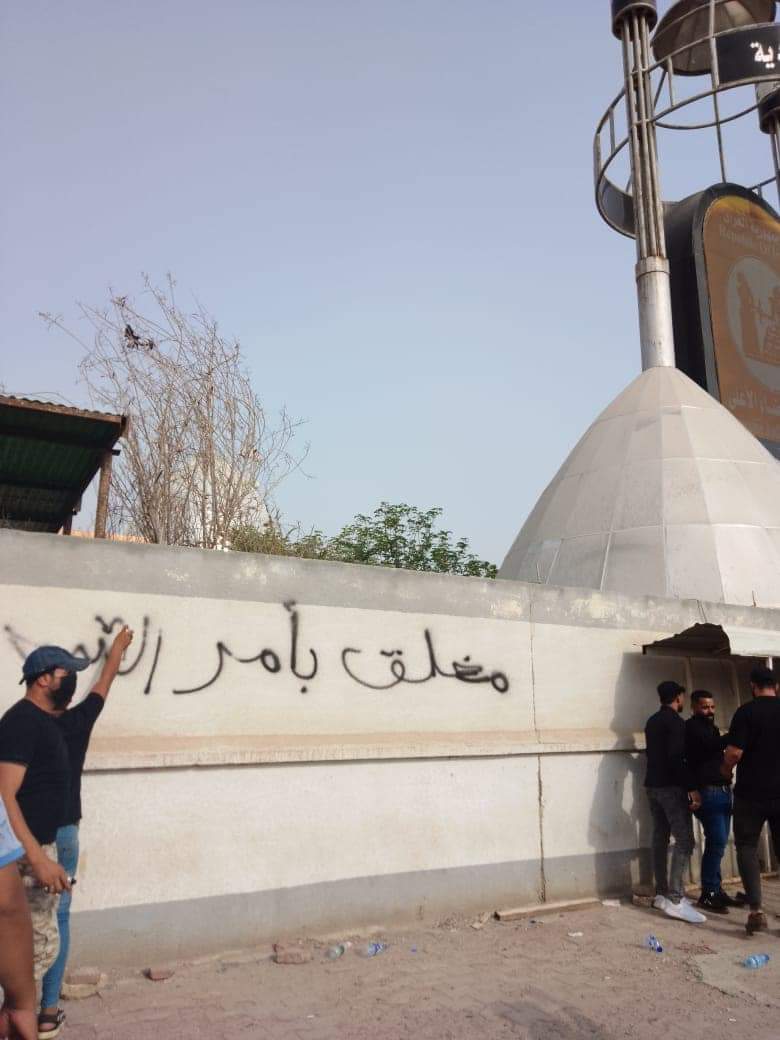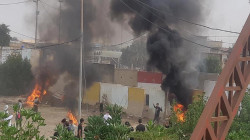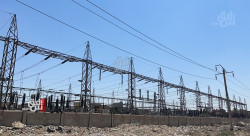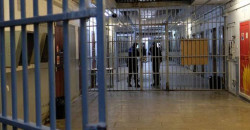Al-Sadr followers picket government departments in Maysan, Dhi Qar
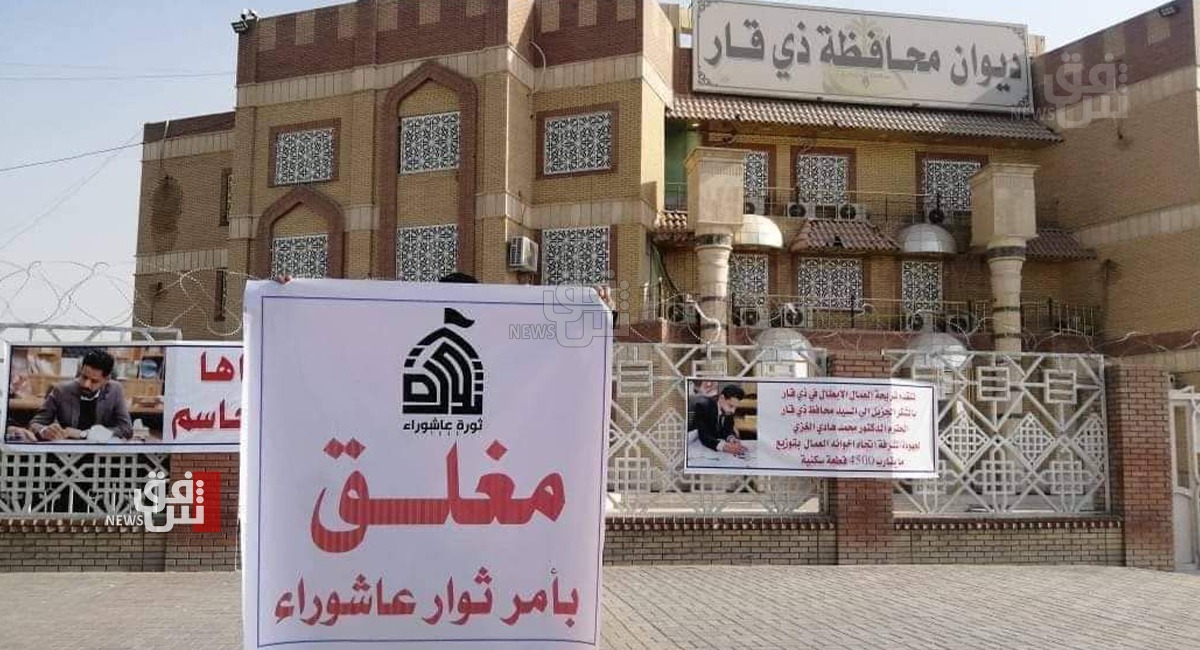
Shafaq News/ Enraged proponents of influential Shiite cleric Muqtada al-Sadr picketed government departments in the southern governorates of Maysan and Dhi Qar following their leader's announcement of political retirement earlier today, Monday.
Shafaq News Agency correspondent reported that dozens of al-Sadr followers hang banners on the headquarters of the Dhi Qar governorate saying it is closed "by the order of Ashoura rebels", in reference to the demonstrations organized by the Sadrist movement inside Baghdad's ultra-secure Green Zone following the nomination of Mohammad Shiyaa al-Sudani for the premiership of Iraq by the rival Coordination Framework.
In Maysan, demonstrators, mainly supporters of al-Sadr, closed all the government departments in the governorate and blocked the main roads by burning tires.
Eyewitnesses told Shafaq News Agency that the Sadrists blocked the main-roads in the governorate after the end of Muqtada al-Sadr's "72 hour revolutionary deadline".
Earlier today, al-Sadr said he was quitting politics and closing his institutions in response to an intractable political deadlock, sparking protests by his followers and raising fears of more instability.
Al-Sadr's supporters, who have been staging a weeks-long sit-in in Baghdad's fortified Green Zone, a sprawling area of ministries and foreign missions, stormed the main cabinet headquarters and demonstrated inside after his announcement.
Iraq's Joint Operations Command (JOC) declared a curfew from 3:30 p.m. (Iraq time) and urged the protesters to leave the Green Zone to avoid clashes.
During the stalemate over forming a new government, al-Sadr has galvanised his legions of backers, throwing into disarray Iraq's effort to recover from decades of conflict and sanctions and its bid to tackle sectarian strife and rampant corruption.
Al-Sadr was the biggest winner from an October election but withdrew all his lawmakers from parliament in June after he failed to form a government that excluded his rivals, mostly Iran-backed Shiite parties.
Al-Sadr has insisted on early elections and the dissolution of parliament. He says no politician who has been in power since the U.S. invasion in 2003 can hold office.
"I hereby announce my final withdrawal," al-Sadr said in a statement posted on Twitter, criticising fellow Shiite political leaders for failing to heed his calls for reform.
He did not elaborate on the closure of his offices, but said that cultural and religious institutions would remain open.
Al-Sadr has withdrawn from politics or government in the past and also disbanded militias loyal to him. But he retains widespread influence over state institutions and controls a paramilitary group with thousands of members.
He has often returned to political activity after similar announcements, although the current political deadlock in Iraq appears harder to resolve than previous periods of dysfunction.
The current impasse between al-Sadr and Shiite rivals in the Coordination Framework has given Iraq its longest run without a government.
Supporters of the mercurial cleric then stormed Baghdad's central government zone. Since then, they have occupied parliament, halting the process to choose a new president and prime minister.
Iraq has struggled to recover since the defeat of Islamic State in 2017 because political parties have squabbled over power and the vast oil wealth possessed by Iraq, OPEC's second-largest producer.
